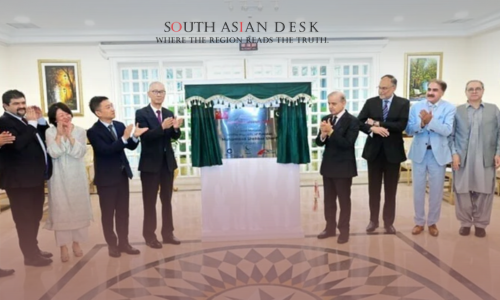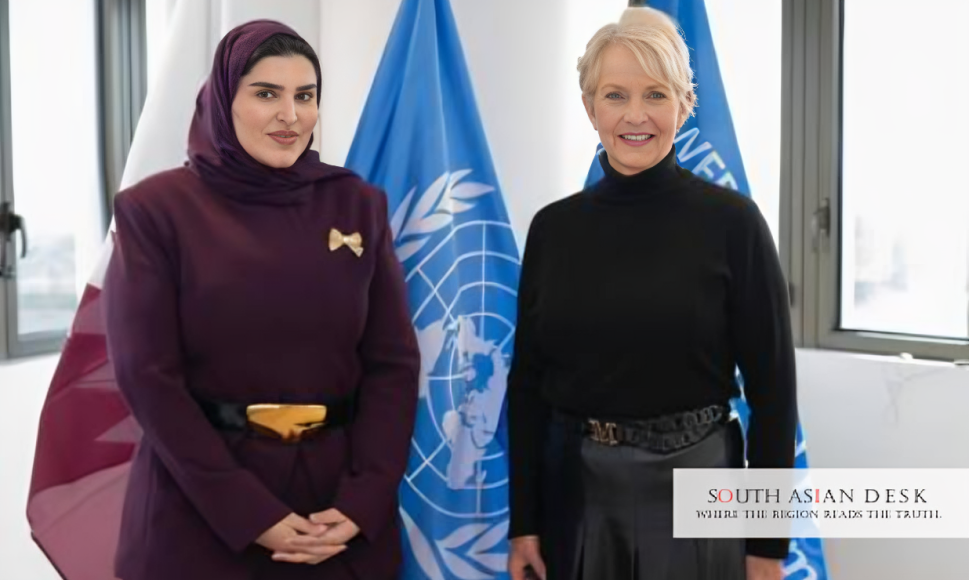Islamabad, Pakistan – In a move that promises to uplift countless families and bolster the nation’s industrial landscape, Prime Minister Shehbaz Sharif has inaugurated a new special economic zone supported by Chinese partners, sparking optimism among workers and communities eager for stable livelihoods.
The ceremony, held in the capital, marks a significant step in deepening economic ties between Pakistan and China, with the zone poised to draw substantial foreign funds and create opportunities that could transform everyday lives. Families in textile-dependent regions, long yearning for progress, now see a glimmer of hope as this initiative unfolds, reminding us all of the shared dreams for prosperity that bind nations and people together.
Shehbaz Sharif China Economic Zone
At the heart of this development stands Challenge Fashion Private Limited, a prominent Chinese garments enterprise, which will spearhead the zone’s operations. The project anticipates an inflow of 100 million dollars over the next five years, building on the company’s existing commitment of 17 million dollars invested in Pakistan since 2014. This fresh injection is expected to yield exports worth 400 million dollars, offering a lifeline to exporters and labourers who have faced uncertain times.
During the launch, Prime Minister Sharif engaged with a delegation from the company, headed by its chairman, where he highlighted the potential for sharing advanced technologies and enhancing skills among local workers. Such exchanges, he noted, could foster lasting industrial expansion, ensuring that young Pakistanis gain the expertise needed to support their households and contribute to the country’s future. The gathering included key government figures, such as ministers for planning, commerce, information, petroleum, power, and a special assistant, all united in their resolve to see this vision through.
This zone aligns closely with the industrial ambitions of the China-Pakistan Economic Corridor, a framework that has already woven stronger bonds between the two countries. Sharif expressed enthusiasm for encouraging more Chinese firms to establish operations in Pakistan, envisioning a wave of relocations that could invigorate local markets and provide jobs for those struggling amid economic pressures. He also revealed intentions to host a business-to-business conference in China soon, aimed at forging deeper collaborations and inspiring confidence among investors who recognise Pakistan’s potential.
The Prime Minister’s appreciation for the Chinese group’s trust in Pakistan resonated deeply, evoking a sense of gratitude and partnership that touches the hearts of citizens watching their leaders strive for better days. For many, this is more than a business deal; it represents a bridge to security, where parents can envision brighter prospects for their children in a sector that employs millions.
Beyond the economic zone, Sharif’s day included discussions that underscored his dedication to regional harmony and domestic progress. He met with Bangladesh’s High Commissioner to explore ways to enhance trade, cultural exchanges, and diplomatic relations, reflecting a commitment to neighbourly goodwill that warms relations across borders. Both sides voiced contentment with the evolving connections, with Sharif recalling positive engagements with Bangladesh’s leadership and pledging support for ongoing advancements.
In separate sessions, the Prime Minister reviewed critical sectors with his team. Updates on the power division addressed ongoing challenges, while petroleum matters focused on supply stability, essential for keeping homes lit and vehicles running. Railway developments were also on the agenda, with emphasis on completing projects that connect communities and ease travel for families separated by distance.
Earlier, during an inspection of the under-construction technology park in Islamabad, Sharif urged officials to hasten efforts, expressing concern over delays that have pushed back the original completion date. He called for round-the-clock work to deliver world-class facilities, a reminder of the impatience felt by citizens awaiting infrastructure that could open doors to innovation and employment.
This series of actions paints a picture of a leader attuned to the aspirations of his people, from factory floors to diplomatic halls. As Pakistan navigates economic hurdles, initiatives like this economic zone offer a beacon of hope, reminding us of the resilience in communities that pull together for shared success. Workers in the textile field, often the backbone of households, stand to benefit most, with increased exports potentially leading to higher wages and steadier work.
The launch comes at a time when South Asia seeks stronger economic footholds, and Pakistan’s partnership with China exemplifies how collaboration can address common needs. For residents in Islamabad and beyond, the zone symbolises not just investment, but a promise of dignity through labour, where skills honed today build legacies for tomorrow.
As the project takes shape, it carries the weight of expectations from families hoping for economic relief. The government’s focus on sustainable growth ensures that this is no fleeting effort, but a foundation for enduring progress that touches lives across generations.
In closing, this development underlines the vital role of international alliances in fostering opportunity, with Shehbaz Sharif China Economic Zone at the forefront of Pakistan’s journey towards a more prosperous horizon.
Published in SouthAsianDesk, August 16th, 2025
Follow SouthAsianDesk on X, Instagram, and Facebook for insights on business and current affairs from across South Asia.






